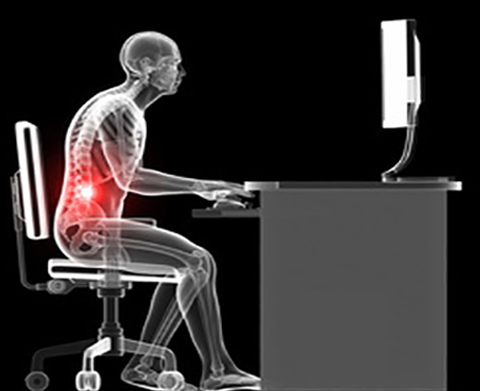Musculoskeletal Conditions & Injuries
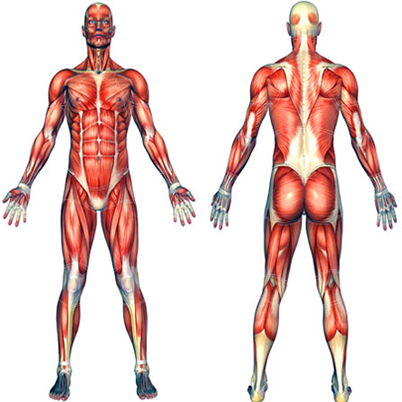
What are Musculoskeletal Disorders?
Musculoskeletal disorders are common conditions that can impact your muscles, nerves, ligaments, tendons, bones, and joints.
Common symptoms of musculoskeletal disorders and injuries include pain, weakness, stiffness, and a “popping” sensation in the joint. Inflammation can lead to pain, swelling, warmth, tenderness, limited movement, and sometimes skin redness. When inflammation affects a joint, fluid may build up inside, causing pain, swelling, and stiffness. For severe pain, appropriate treatments such as musculoskeletal conditions treatment, including physiotherapy, are recommended to alleviate symptoms and promote recovery from musculoskeletal injuries.
Work-Related Musculoskeletal Disorders (WMSDs)
WMSDs (Work-Related Musculoskeletal Disorders) are conditions that develop gradually over time due to the repeated overuse of the body’s structures. Traumatic musculoskeletal injuries caused by accidents are not classified as WMSDs. Repetitive and frequent activities, or those that require awkward postures, can result in such disorders, which may be painful during work or even at rest.
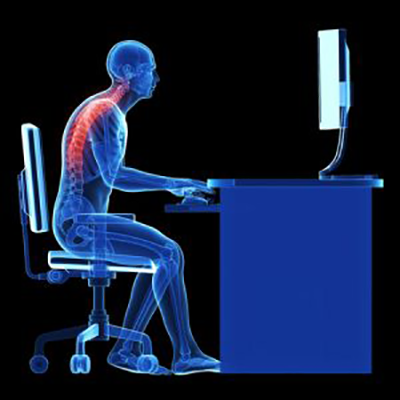
Most jobs require frequent use of the arms and hands. As a result, desk-bound work can lead to pain in the hands, wrists, elbows, neck, and shoulders. For jobs that involve lifting, aches can develop in the legs, hips, ankles, and feet as well.
People who are more likely to experience WMSD include office workers, young mothers, delivery and construction workers, and healthcare professionals. Repetitive activities can also cause back problems, including neck pain after waking up, shoulder pain after waking up, lower back pain, and knee pain when bending. In addition, hip pain after running and poor weight management can also contribute to musculoskeletal discomfort. Incorporating back pain exercises can be beneficial in reducing the risk of developing these conditions.
What Are The
Risk Factors For WMSDs?
WMSDs (Work-Related Musculoskeletal Disorders) develop from repetitive movements of the arm and hand, like bending, straightening, gripping, holding, twisting, clenching, and reaching. While these motions are generally fine in everyday life, doing them repeatedly over time can lead to musculoskeletal injuries. Factors that can make these injuries worse include constant, forceful repetition, quick movements, and not giving your body enough time to recover. If left unaddressed, these can progress into more serious musculoskeletal conditions. Seeking the right musculoskeletal conditions treatment, such as physiotherapy, can help ease symptoms and prevent long-term damage.
Work Patterns Associated With WMSDs
- Constrained/fixed body positions
- Continuous and repetitive movements
- Force applied to small parts of the body, such as the hand or wrist
- Insufficient recovery between movements due to pace of work
These factors do not act separately to cause WMSD. Instead, they occur as a result of a combination of them.

People with WMSD will commonly experience pain. In some cases,these are accompanied by joint stiffness, muscle tightness, redness and swelling of the affected area. Some may experience “pins and needles” sensations, skin colour changes, and decreased sweating of the hands. If you’re experiencing pain, you are advised to seek a physiotherapist early to prevent further musculoskeletal complications.
Stages of WMSDs
WMSDs progress from mild to severe stages:
EARLY STAGE
Aches and fatigue occur during work but disappear at night and when off work. There is no effect on work performance.
INTERMEDIATE STAGE
Aches and fatigue experienced early in the work shift and persist at night. There is reduced capacity for repetitive work.
LATE STAGE
Aching, fatigue and weakness continue while at rest. There is difficulty falling asleep and performing light duties.
Not everyone experiences these stages in the same way. It is also not possible to determine when one has progressed to the next stage. The moment you experience pain, it is a sign that the muscles and tendons need rest. Otherwise, the injury can become longstanding, and at times, irreversible. The earlier you recognise symptoms, the quicker you should respond to them.
Our Recommended Treatments
At Rapid Physiocare, we offer a wide range of physiotherapy treatments for WMSDs and musculoskeletal conditions.
- Progressive Strengthening Exercises: Musculoskeletal physiotherapy for pain relief
- Clinical pilates: A low-impact exercise to improve flexibility & strength.
- Shockwave Therapy: Uses shockwaves to trigger and accelerate healing.
Let us help you formulate an ideal treatment plan for your recovery. Get in touch with us at +65 6904 4900 or book an appointment at one of our clinics today!
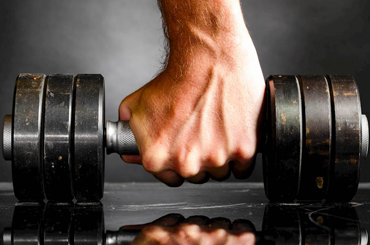
Progressive Strengthening Exercises
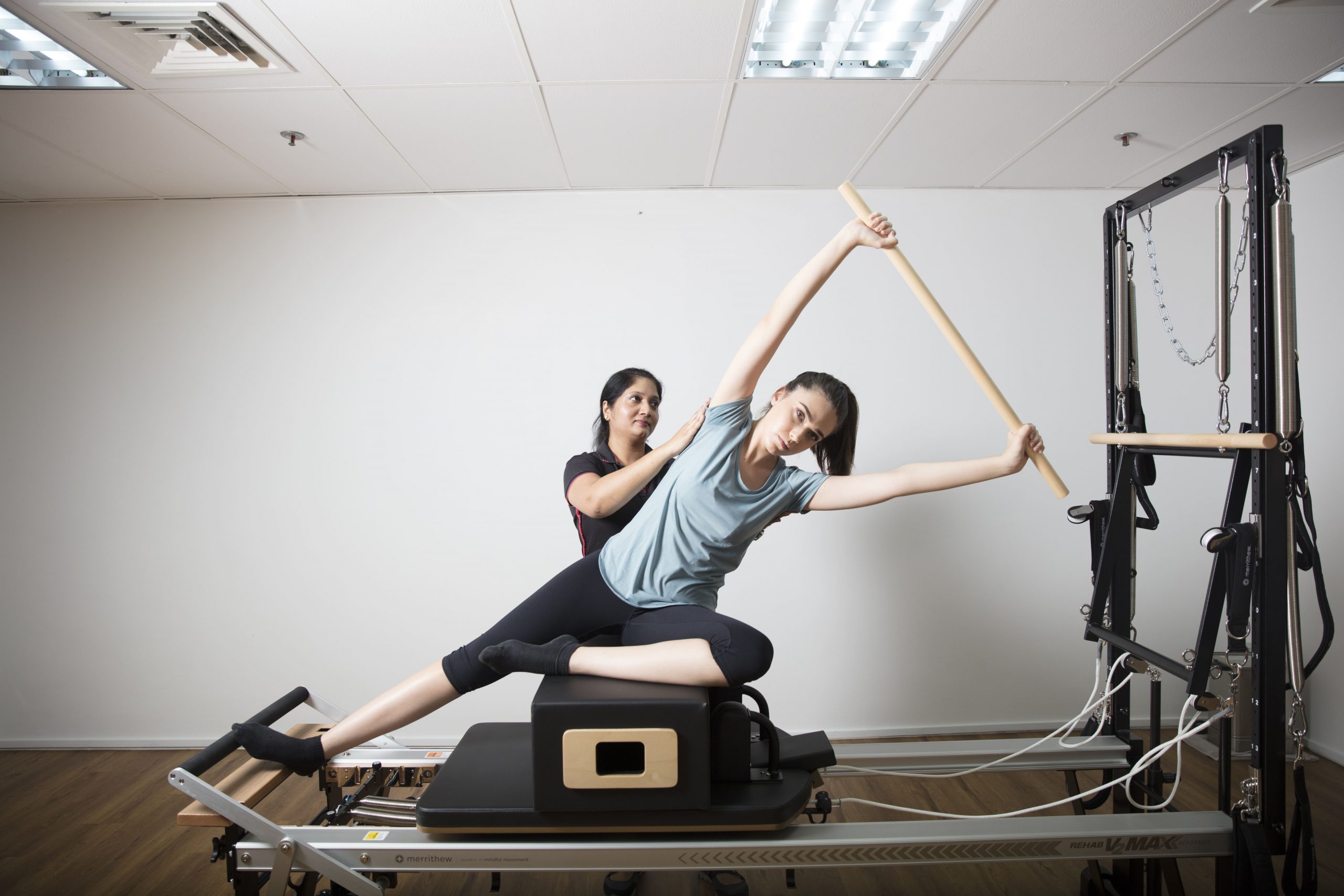
Clinical pilates
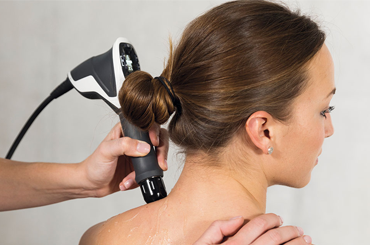
MedTech
Frequently Asked Questions About Musculoskeletal Conditions & Injuries
What is a musculoskeletal injury?
A musculoskeletal injury refers to any injury that impacts the muscles, bones, joints, ligaments, or tendons. These injuries can occur suddenly due to accidents or trauma (like a fall or sprain), or gradually over time from repetitive movements, poor posture, or overuse.
What is the most common musculoskeletal condition?
Lower back pain is one of the most common musculoskeletal conditions. It affects people of all ages and is often linked to poor posture, prolonged sitting, lifting injuries, or degeneration of spinal structures. Other common conditions include neck pain, osteoarthritis, and tendonitis.
What is the most common cause of musculoskeletal pain?
The most common causes of musculoskeletal pain include poor posture, repetitive strain, overuse of specific muscles or joints, and injuries resulting from accidents or physical activity. Lack of physical movement and prolonged sitting can also contribute to pain.
How do you know if pain is musculoskeletal?
Musculoskeletal pain typically feels like aching, stiffness, or soreness in the muscles, joints, or bones. It may increase with movement or activity and ease with rest. The pain may be localized to one area or spread across multiple regions of the body.
What parts of the body are affected by musculoskeletal conditions?
Musculoskeletal conditions can affect any part of the body. back, neck, shoulders, knees, hips, wrists, and elbows are among the most commonly affected areas. These regions are especially prone to strain due to repetitive use or poor posture.
Is walking good for musculoskeletal pain?
Walking can be beneficial for many types of musculoskeletal pain. It helps maintain joint flexibility, improves circulation, and supports overall mobility. However, it should be done at a comfortable pace, and individuals should avoid walking if it worsens their symptoms.
How to fix musculoskeletal pain?
Treating musculoskeletal pain typically involves a combination of rest, physical therapy, exercises to strengthen and stretch the affected area, and lifestyle adjustments such as improving posture or ergonomics. In some cases, additional treatments like manual therapy, medication, or assistive devices may be recommended.


